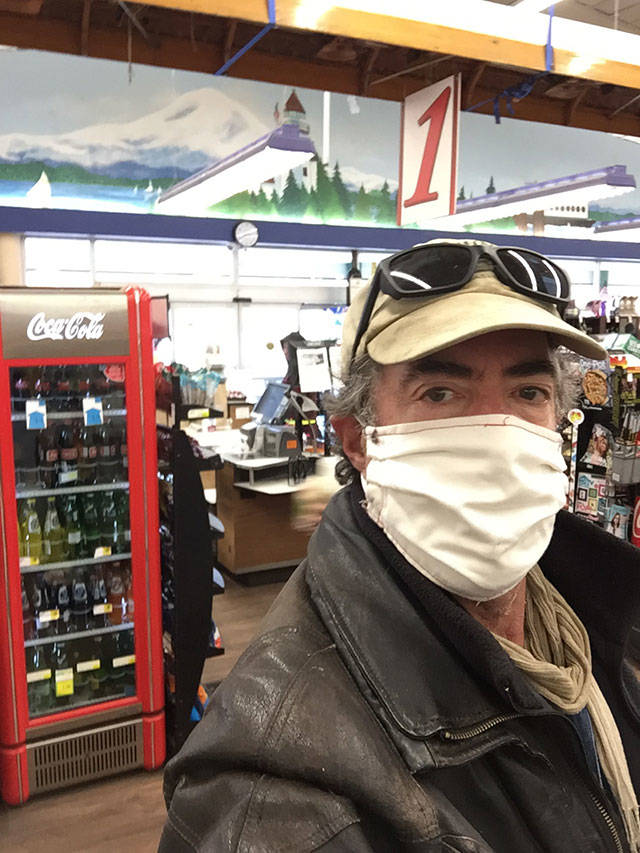The trajectory of my life that led me here to Vashon seems natural.
I spent my childhood imagining a life of self-sufficiency (“My Side of the Mountain” was my favorite book), I took courses in design, construction, human ecology and voluntary simplicity and I spent two years living in Nepal working with the Peace Corps. After that, my travels around the world led me inexorably to an accidental introduction to a place I’d never even heard of. I stumbled upon this island and these people where I feel so at home.
I was brought up in middle-class New England as an “environmentalist,” and taught to turn off lights, keep the thermostat low and put on a sweater as well as to combine trips in the car to save gas. One of my lifelong goals is to have a small carbon footprint.
That’s why, when I was recently invited to spend a week at a private ski resort in Montana — apparently the only one in the world — I was excited to experience it. But upon arrival, I was overwhelmed by the…grandeur? The lavishness? The thoughtless waste?
The mountain was beautiful and pristine, as one would expect of a mountain in Montana, populated with many stunning stone and glass chalets. After a day or two, I thought to myself, oh, so this is how the other half lives — but then quickly corrected myself: this is how the other .01% lives.
Seth Meyers recently noted during his monologue that, since the start of the pandemic, Jeff Bezos has increased his wealth to the point that he could give a $105,000 bonus to every one of his employees and still be worth his pre-pandemic $162 billion. (He didn’t do it.) Also, since the pandemic began, our economy has minted 56 new billionaires. Fifty-six. Billionaires. And this is while tens of millions of previously hard-working Americans were standing in long food bank lines and fretting about how to pay next month’s rent and utilities.
I felt so appalled by the realization that many of these beautiful stone chalets on the mountain were heated to about 65 degrees even as they sat empty. Many of them were equipped with hot tubs — outdoor and heated to 102F. With its dozens of chalets and 14 ski lifts running all day at 10% capacity, this playground consumes a vast amount of fossil fuel while providing a unique and sublime experience for a very few wealthy people.
There is an underlying issue here: that the disparity between the haves and the have-nots is both gross and alarming. Those with vast fortunes — and even not so vast — are angrily intent on keeping their fortunes, regardless of the condition of their neighbors or the state of their country. Resistance to paying taxes is so strong as to be a fixation. A common feeling among the wealthy is that there is an army of lazy, poor dead-beats across the country who are trying to take away their money, to re-distribute it to pregnant welfare mothers.
We all have a right to earn and spend our money in any legal way we choose. But I believe that this issue of wealth disparity is more systemic, that we’ve created a society in which this can occur. It started with Ronald Regan who chose to believe in the“trickle-down effect” —If we cut the taxes of corporations and the rich, they would invest that money, creating new businesses and adding many more jobs that would grow the economy.
It didn’t work. The average CEO’s salary, which used to be about 25 times the wage of the factory worker, is now more than 250 times more. This disparity has helped to create an upper class — what we’ve come to call the .01% — that has the resources to create and enjoy luxuries like private ski mountains.
With all of the concern about our global climate changing before our eyes and the fact that we know how to address it, this mountain wonderland was profoundly disturbing to me. I witnessed very few people consuming a very large amount of energy — our collective energy — and producing far more greenhouse gasses than a similar number of “normal” people, and I felt helpless to do anything about it. They weren’t doing anything “wrong,” but it was all so very wrong.
I believe that we’re all in this together: fighting the pandemic, addressing climate change, ending racism, controlling our national debt and all of the other pressing issues that confront us in the 21st century. And yet, there seems to be an “us and them” mentality for every issue. The anti-vaxxers and the vaxxers; the energy hogs and the tree-huggers; the Proud Boys and those who are anti-racist; the rich families who desperately seek out tax shelters and the many Americans who proudly pay their taxes to keep our country going.
My trip to Montana kept me wondering: what will it take to make us change?
Scott Durkee is a freelance factotum, artist and winemaker. He lives on Maury Island.



